The Return of YoYo
While core data is retrieved and the main machine's operating system and files are rebuilt overnight (gee, I'm gettin' awfully good at this rabbit rubbish), the wave of reviews will be delayed until Sunday.
Astrological Portents That I Sense:
I see a new transition for 2010. I sense a move from PC to Mac. I feel this can be done with no regrets. I feel the YoYo virus will finally leave my space bubble alone.
Until then, do read my interview with composer Elia Cmiral, whose recent work includes the teen horror flick Forget Me Not, and the WWII historical drama Habermann, set for a 2010 release.
- MRH
(First) Horror Efforts
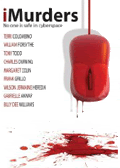
Although Robbie Bryan had written and starred in The Stand-In (1999), iMurders marks his feature directorial debut, as well as his first effort in the horror – a genre that many filmmakers use to make a commercial mark as well as learn the ropes of feature filmmaking before moving on to more personal or riskier projects.
Horror has and will probably continue to be a popular genre for first-timer directors because it’s hugely commercial in spite of being cluttered with many second-rate efforts, or works where the director shows singular strengths (Robert Hall’s Laid to Rest, Stephen Norrington’s Death Machine) rather than a knack for genuine storytelling (which, in and of itself, includes the ability to shock, as well satisfy audiences).
iMurders is a mixed bag because it’s perhaps too ambitious: the bookend scenes that start and end the film with a hook and twist finale work, but everything in the middle is very wobbly. Either the script was undercooked, or when everything was assembled, certain glaring weaknesses had to be pruned for pacing and evened out the multiple story threads, which in turn weakened certain characters as well as performances.
The issue of a weak centre is what also affected the first Saw film back in 2004 – great premise, an excellent twist, memorable score theme – but there was that truly horrible acting, messy plotting, and some wretched dialogue that made one wonder whether actor Cary Elwes was ever competent in the first place.
In spite of the surprisingly strong cast (not to mention underused genre composer Harry Manfredini), iMurders doesn’t quite hit the mark, but it has some strong points, some of which are addressed in the review of Anchor Bay’s DVD.
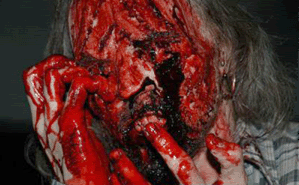
Also from the label comes Cameron Romero’s Staunton Hill, which is being billed in some areas as the director’s first film, as well as his first horror film. Romero, son of icon George Romero (Night of the Living Dead), has already directed a gory slasher called The Screening (see above picture sniplet), but that project has reportedly been shelved in spite of being completed back in 2007.
Whether Romero prefers to let the film rest for future tinkering or later sneak it out as a quiet DVD release after more recent projects have demonstrated his confidence as a filmmaker, The Screening is a film some genre fans are very curious to see, though whether it’s worth the wait won’t be known until it’s finally in theatres or home video.
In its place comes Romero's formal commercial debut, Staunton Hill, which borrows from the Texas Chainsaw Massacre template and gives certain aspects some variations that ultimately affect the story’s coherence. The sporadic gore is fairly strong, but it’s obvious Romero wanted to balance blood-letting with atmosphere and capture profane behaviour within the beautiful surroundings of a quiet farm during the blazing fall season.
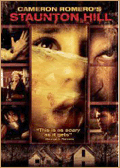
Like iMurders, aspects of the film’s budget affected some technical components, and the film’s success on home video will likely depend on the keen interest, and kindness by less finicky fans.
- MRH
Soundtrack News
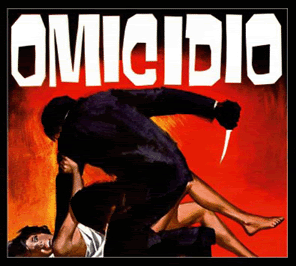 I’ll have another set of soundtrack reviews out shortly, but available shortly on CD and MP3 are the following soundtracks from the usual mail order shops:
I’ll have another set of soundtrack reviews out shortly, but available shortly on CD and MP3 are the following soundtracks from the usual mail order shops: Bill Conti’s That Championship Season (La-La Land Records).
Bill Conti’s beautiful Murderers Among Us gets an expanded release from Buysoundtrax.com (aka BSX Records), and the label is releasing the next full soundtrack album by Alan Howarth – Morkeleg (Backstabbed). I wonder if Retribution (1987) will ever see the light of day again... and also from the label is Basil Poledouris’ Wind paired with A Whale for the Killing, and Lee Holdridge’s Winterhawk gets its own CD release.
TCM’s been running a salute to composer Johnny Mercer this month, so out comes the soundtrack album to the documentary Clint Eastwood presents Johnny Mercer, featuring ‘songs from and inspired by’ the film, marking Mercer’s birth in 1909.
MovieScore Media’s released a limited CD edition of James Peterson’s The Red Canvas for those wanting more than the standard digital album, and the label will also release The House of the Devil / I Can See You from the innovative Jeff Grace on CD and MP3 as well.
Britain’s Network, which releases both DVDs and CDs, has already put out a number of complete series sets for composers Edwin Astley and Laurie Johnson (to name a few), and now comes a 2-disc sampler – The Music of ITC - with music from The Saint, The Protecttors, and many others.
(Now if only the owners of the ITC film library would stop licensing crappy full frame NTSC transfers to Region 1 distributors and remaster some of their prestige and cult titles. If crud like G.I. Joe can exist on DVD and Blu-ray, why can’t we get a widescreen edition of Voyage of the Damned or The Cassandra Crossing. Oh wait, Cassandra was out letterboxed, but then it was replaced with a full screen version. Sometimes I wonder if monkeys are the ones pressing the green-for-go buttons in the ITC film and video archive.)
From Sweden’s fin de siècle media comes Stefano Torossi’s Omicidio per vocazione / E’stato bello amarti (limited to 500 copies).
From Italy’s DigitMovies comes a bevvy of new goodies: Bruno Nicolai’s music for Peter Collinson’s Ten Little Indians (1974), Riz Ortonlani’s Una ragione per vivere e una per morire / La notte dei serpenti, Stelvio Cipriani’s Il triangolo delle Bermuda / Bermude: la fossa maledetta / Uragano sulle Bermude l’ultimo S.O.S. (on 2 CDs), and Roberto Nicolosi’s score for Mario Bava’s Black Sabbath (with mono and surviving stereo cues).
Italy’s Beat Records is issuing Nico Fidenco’s Emanuelle Nera (Black Emanuelle) in a limited run of 1000 copies.
Spain’s Saimel Records is releasing Angelo Francesco Lavagnino’s Attentato ai tre Grandi / Africa ama in a limited run of 500 copies, and Mateo Pascual’s music for the videogame Planet 51.
Lastly, Antonio Cora and Kent Sparlin’s Seventh Moon comes to CD via ERM Media (distributed worldwide via Naxos)
I just finished an interview with Christopher Gordon (On the Beach, Moby Dick, Salem’s Lot) regarding his new score for the vampire film/I am Legend riff Daybreakers, which will run in the January/February issue of Rue Morgue magazine. (The full Q&A version will run at KQEK.com a bit later.) The soundtrack album runs 64 mins., and is just superb. The huge Wagnerian sound and extensive use of cellos and fascinating brass effects are just some of the gorgeous sounds in this epic orchestral score, which will be released in January by Lionsgate Records. When’s it’s out, buy the CD.
Seriously.
- MRH
Arrabal, Jodorowsky, Makavejev... and Brass?

Before his decadent switch to sexploitation and erotica, Tinto Brass made a pair of films wherein he experimented with sophisticated editing concepts (visually and aurally) to create narratives from loosely drawn concepts, as well as inject some commentary on the political and social turmoil of the times.
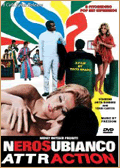
Both Attraction / Nerosubianco (1969) and The Howl / L’hurlo (1970) are more accessible than expected – each has a premise that pushes unexpected couples on wayward journeys – but they’re part of a wave of provocative films from European filmmakers designed to shock, upset, and titillate audiences.
The overall impetus was to show people moral and political issues using a subjective viewpoint (the filmmaker’s) and provoke some thought about what was going on, be it student protests against whatever war was being raged by a colonial power, sexual repression, or a communist regime shoving doctrine down the throats of its citizens in every manor and method possible.
Think a little for yourself, fight against a brutal regime, and enjoy the benefits of the human body – themes Brass weaves together in his raunchy political fable The Howl. Politics are less evident in Attraction (released in the U.S. by Radley Metzger’s Audubon Films under the cheat title The Artful Penetration of Barbara) because Brass was still having fun with the pop art of swing sixties London – a lingering interest from his prior film, the partial giallo Deadly Sweet (1967).
Whereas The Howl is a trippy little fable, Attraction unfurls like a contemporary music video, since the lead heroine’s adventures are comprised of musical vignettes where the score’s composers – members of the band Freedom – appear on camera and in scenes with other characters.
Cult Epics recently released the two films separately (and as part of a boxed set, alongside Deadly Sweet), and I’ve uploaded lengthy reviews for both.
Also added to the mix is a I Miss Sonia Henie, a rare short made for the 1971 Belgrade Film Festival wherein select directors - Karpo Acimovic-Godina, Tinto Brass, Mladomir 'Purisa' Djordjevic, Milos Forman, Buck Henry, Dusan Makavejev, Paul Morrissey, Frederick Wiseman - were challenged to shoot actors with a locked off camera and fixed lens, and figure out some way to work in the phrase “I miss Sonia Henie.”
The pieces were edited into a 14 min. film by Godina, and the results are expectedly uneven. Still unavailable on DVD, the short does pop up at rare screenings (MOMA included the film in a 2008 retrospective of Milos Forman), and segments are available at YouTube, with English subtitles.
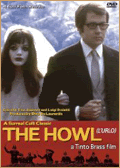
So how does Tinto Brass fit in with cinema agitators Fernando Arrabal, Alejandro Jodorowsky, and Dusan Makavejev? The argument begins with The Howl…
- MRH
Soundtrack Updates

Uploaded late last week is an interview with composer Richard Marvin, a successful composer – hugely successful, actually – in TV (Six Feet Under, In Treatment) as well as feature films. A longtime associate of director Jonathan Mostow, Marvin’s latest score for the film Surrogates *finally* gets a release date of November 10th as a downloadable MP3 album and CD from Lakeshore Records.
The Surrogates score is a flawless marriage between electronics and orchestra, and is highly recommended as a sci-fi soundtrack with strong emotional and kinetic action content. For a detailed discussion of the score and Marvin’s longtime experience with electronic instruments (including as a musician on several beloved Maurice Jarre scores), read the interview.
Also uploaded:
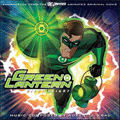
- Robert J. Kral’s kinetic score for Green Lantern: First Flight (La-La Land Records), a score that should give your stereo’s subwoofer a damn fine good workout
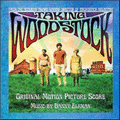
- Taking Woodstock (La-La land Records), Danny Elfman’s venture into retro seventies rock for Ang Lee’s odd little comedy drama

- Rex Steele: Nazi Smasher and Other Short Film Scores (MovieScoreMedia), one of the best composer compilation albums this year. I’ve yet to interview Ryan Shore, but this album proves this composer’s ability to write for any genre. For Jack Ketchum’s Offspring (2009), it was an icy fuzz electronica approach deliberately evoking Cannibal Holocaust, but Rex Steele features a raucous, regal, and moving collection of suites and themes from 7+ short films
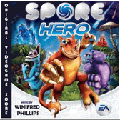
- Spore Hero (EA Games), Winifred Phillips’ latest video game soundtrack. This time it’s for the new Nintendo Wii game, and it’s an hour-long series of lengthy, meaty themes and clever variations. Solid narrative, and another album by a composer to keep watching for (and listening to)
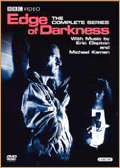
In terms of DVD news, a long while ago I snapped up the Region 2 BBC release of Edge of Darkness (1985), the British mini-series that really gave Martin Campbell his big career break. The series has been remade for American theatrical audiences with Campbell in the director’s chair, and while it’s easy to say this film version slated for 2010 is NOT NECESSARY, perhaps it’ll please audiences hesitant to try out the long mini-series, or have them check it out beforehand (which you should do).
That said, while I’ll have a review of the series up next week (along with Campbell’s early nudie-roughie-silly Brit sexploitation film from the seventies), I will confirm that the Region 1 release out this week is a literally NTSC-PAL conversion of the same Region 2 master, and it includes the same featurettes, vintage interviews and isolated score by Eric Clapton and the late, great Michael Kamen.
Clapton’s forays into film and TV are few, but this was one of his best because of a damned soulful guitar theme which nailed a father’s heartache in losing his daughter, his horror in finding she was pawn in a murderous plot, and trying to make sense of the madness when madness itself is mucking up his own sanity. Big themes nicely delivered in a riveting 3-part mini-series (and a heroine that’s much more sympathetic than the vague, forgettable variation in the film version of The Constant Gardener).
Also new this week is Criterion’s DVD and Blu-ray releases of Wim Wenders’ Wings of Desire (1987), with a new commentary track, and a second disc of extras I’ll have reviewed in time for next week’s 20th anniversary of the Berlin Wall’s demise.
And just because variation is important, coming next are two Tinto Brass features from Cult Epics – Nerosubianco / Attraction (1969), and L’urlo / The Howl (1970) – two films one can regard as the director’s last and very sincere editorial experiments in pop art and political/social/sexual satire before he lost his mind and went popo-crazy.
In 1969, there was the group of European provocateurs Fernando Arrabal, Alejandro Jodorowsky, and Dušan Makavejev… and Tinto Brass, and I’ll explain why, without losing my soul.
- MRH






